- Home
- Jennifer Ashley
The Untamed MacKenzie Page 4
The Untamed MacKenzie Read online
Page 4
“I gave him tea. I dropped in one lump of sugar and a dollop of cream. I’m very certain it was sugar and cream. I have served tea before.”
Fellows did not reach for his notebook. He’d had Pierce take the sugar bowl and pour off the cream as well.
“Or you thought to make him sick,” Fellows went on. “You didn’t realize what you gave him would kill him.”
Louisa stared in shock. “No. Inspector, you know me. I would never be so cruel. I am telling you, I did not poison the bishop’s tea, deliberately or accidentally. I would never do such a thing. You have to believe me.”
Her desperation sang of her innocence. But Fellows had heard the same tone from lying murderers—they were masters at it. If Sergeant Pierce were in the room, he’d say, “That’s what they all tell me, love,” and be on his way back to London to apply for an arrest warrant.
Facing a magistrate would be traumatic for Louisa. She needed to understand that. Fellows’ next words were what he knew a stern magistrate’s would be. “You were alone in the tent with him, no one else near. He died, and if we are right about what kind of poison it was, it acted swiftly. That fact will get out. Newspapers like a murder, especially in the upper classes. The bishop had given your father trouble over their financial dealings. No one else had time to put poison into his teacup. Only you. So you tell me what happened, exactly what you saw—who you saw. I will keep you out of jail and away from the courts at all costs, Louisa, but I’m going to have to work very hard to do it.”
Louisa listened to the speech in the same shock, but color returned to her face in a furious flush. “What are you saying? That you don’t believe me? I thought you knew me. Why are you . . . ? How dare you?”
Fellows was on his feet, his professional persona evaporating. “For God’s sake, Louisa, help me. My sergeant is even now listening to fifty accounts of you going into the tea tent alone with Hargate. Why did you?”
She blinked, dragging in a deep breath as she tried to calm herself. “I don’t remember . . . No, I do. Mrs. Leigh-Waters asked me to make sure the bishop was looked after.”
“And you do everything Mrs. Leigh-Waters says? You let yourself be alone with unmarried gentlemen to please Mrs. Leigh-Waters?”
“You are making this sound sordid. It wasn’t like that. You don’t understand.”
Fellows was over her, the scent of violets that clung to her floating to him. “Then tell me why.”
“Mrs. Leigh-Waters didn’t want him left by himself,” Louisa said stiffly. “And apparently he wanted to speak to me.”
“What about?”
Fellows stood too close to her, could feel the warmth of her body, see the smoothness of her skin as her pink flush deepened. “None of your business what about,” she said. “It was a private conversation.”
“Between friends?”
“Yes. Why are you talking to me like this? I’d thought we were friends. Why are you accusing me?”
Fellows curled his big hands. “Right now, I am the best friend you can have. But you have to tell me everything. What you were speaking about, why you decided to be alone with him. Why I should believe you didn’t deliberately poison him.”
Louisa’s breath tangled his for an instant before she stepped back. She put her hands to her temples, red curls snaking around her fingers. “This has to be madness. I didn’t kill him.”
“You expect me to take you at your word?”
“Yes, I do.” She glared up at him. “An Englishwoman’s word is as good as an Englishman’s.”
“Not in my world.” Fellows made his voice hard. “In my world, everybody lies. They might think it for a good reason, but they lie. And those lies hurt. They can even kill.”
“You come from a terrible world, then.”
“Oh, it’s bad, all right.” Fellows gave her a wolfish smile. “And I don’t want you to be part of it. So tell me, Louisa, why did you go off alone with the bishop?”
The tears that flooded Louisa’s eyes made his heart pound. But they weren’t tears of sorrow, they were tears of rage and embarrassment. “I don’t want to tell you,” she said. “It had nothing to do with his death.”
“You can’t know that. It might have everything to do with it.”
Louisa had opened her mouth to argue, but she stopped. She turned away again, still massaging her temples, moving to the window. The light silhouetted her, her gown gently swaying as she walked.
The vulnerability in her stance nearly undid him. Fellows wanted to go to her, slide his arms around her from behind, kiss her hair when she leaned back to him. He wanted to caress her, as though she belonged to him, and say, It’s all right, love. I’ll take care of everything. You don’t worry about any of it. I’m here.
If Fellows touched her, he wouldn’t let go. He’d draw her into his arms again, crush her up to him, let their mouths meet. He’d taste her, drink her, and let the rest of the world go to hell. He’d take her away with him, anywhere, to be safe, alone with him. Never letting go.
When Louisa turned back to him, her face was blotchy red, the tears wiped away, but one still damp on her cheek.
“You’re a policeman,” Louisa said. “From what Mac and the others have told me, you’re very good at it. A detective first, they’ve said. Like a bloodhound on the scent.”
Fellows dragged in a breath, pulling his thoughts back from burying himself in Louisa and never coming out. “Flattering.”
Ian Mackenzie had once lumped Fellows’ dedication in with the Mackenzie family’s madness, saying Fellows’ focus on catching criminals was as intense as Cameron’s brilliance with horses, Mac’s with painting, or Ian’s with numbers and total recall.
“If I tell you, the good policeman, everything, it will end up in a report on a desk, will it not? The foolishness of Lady Louisa Scranton in black and white, for all to see. Shall I then find it splashed across every newspaper and scandal sheet in London?” Louisa gave a half-hysterical laugh. “Why not? They played out my sister’s marriage and near-divorce there. They’ll quite enjoy themselves over me.”
Fellows held up his empty hands. “My notebook is over there. Whatever you say to me, in this room, will go no further. I’ll write it into no report. What you tell me will be between you and me, I promise you. You’ll have to take me at my word.”
“And why would you, the good policeman, not write down every syllable I say?”
Because I’d do anything for you, Louisa.
“Because I’m not always the good policeman,” Fellows said. “Never mind what the Mackenzies tell you about me—sometimes I’m just a man.”
Just a man who remembered every brush of her lips, every touch, their impulsive kisses, the stolen moments. I shouldn’t have done that, she’d whispered after the first time. But I’ve been wanting to kiss you. Fellows’ world had changed that day and hadn’t righted itself yet.
“I want to trust you,” Louisa said.
“I want to trust you.”
Louisa looked away, head turned, but not bowed. She was courageous, elegant, beautiful. Fellows wanted her with the intensity of a small sun. Somewhere not this overly large sitting room where she could walk so far away from him, somewhere he could close her in his arms, lay her head on his shoulder, and simply be with her.
“Very well, I’ll tell you,” Louisa said. She looked back at Fellows, her green eyes luminous with unshed tears. “Mrs. Leigh-Waters encouraged me to go alone to the tea tent with the Bishop of Hargate, because she knew he would propose to me there.”
Chapter Five
Isabella’s maid had laced Louisa’s stays too tightly. She could not draw a proper breath, couldn’t keep her voice from sounding scratched.
She hated the way Inspector Fellows was looking at her—Chief Inspector now; he’d won his long sought-after promotion. His hazel eyes were steady but behind them were questions, skepticism.
This man, this half-Mackenzie, always unnerved her. He was as tall and strong as his brothers
, and possessed their air of confidence so acute it was almost arrogance. His hair, a dark shade of auburn, had been cut short, now rumpled as though the wind had caught it. Unshaved whiskers were dark on his bruised and battered face, and his eyes were red-rimmed.
But the hazel eyes that looked out at her showed anything but exhaustion. Fellows watched her with the keenness of a hawk, one waiting for the right moment to strike its prey.
The abrasions on his face had stunned Louisa almost as much as seeing him again. She wanted to touch him, ask in concern what had happened to him, try to make his hurts better, as though she had a right to.
The wild streak in the rest of the Mackenzies had been honed in Fellows into a ruthless need to pursue whatever criminals he believed needed to be pursued. He was just as single-minded as the rest of the family, but not as scandalous, because he kept a very tight rein on his emotions.
Fellows waited, not saying a word. The hawk would let his prey come to him.
Louisa drew another breath, or tried to, silently cursing her tight corset. “And yes, he did propose.”
“And you said . . . ?”
“I never had the chance to answer. As I tried to think of a way to let him down politely, he took ill.”
Fellows’ expression didn’t change. “You were going to refuse him?”
“Yes.”
“Why?”
I thought of you, and I couldn’t. “Why?” She wanted to laugh again. “Because I did not want to marry him. I knew we wouldn’t suit.”
Fellows’ expression didn’t change. “Because your father defrauded him?”
Louisa flinched but had to nod. “I was surprised Hargate wanted to propose to me, in light of that.”
“Curious.”
“Yes, it was.” Humiliating too. Something she did not want to discuss with Mr. Fellows.
Fellows looked her up and down, and when he spoke again, his voice was mild and even. “I’ve spent years listening to people lie to me, Louisa. I’ve learned what exactly it sounds like. Up until this moment, you’ve been telling me the truth. Now you are lying. Why?”
With any other man, Louisa might hold her head up and demand him to cease badgering her, but with Fellows, she couldn’t. He knew too much about her. He knew she liked kissing him, liked the smoothness of his lips, the taste of his tongue.
Her face burned. “You are presumptuous.”
“It isn’t presumption,” Fellows said, keeping the mildness. “Or assumption. Why did you refuse the Bishop of Hargate? He’s rich, has plenty of titles in his family, and a lofty position. He should have been a good match for you.”
His indifferent tone made Louisa’s heart sting. “I should have married him for his wealth and position?” She gave him a mirthless smile. “Is that what you’re asking?”
“It is why people of your class marry, isn’t it? A business arrangement. Marriage is for connections and money; love is sought with mistresses.”
In spite of the uncaring words, the look in Fellows’ eyes was bitter. Louisa knew his history—the now-deceased Duke of Kilmorgan had dallied with a tavern maid, got her with child, then deserted her. When Fellows’ mother sought the duke to tell him about the baby and ask him for help, he’d denied Fellows was his.
Fellows’ Mackenzie blood was obvious, however. At one time he’d worn a thick moustache to hide some of his features, but now that he went about clean-shaven, the resemblance to the old duke and to Hart Mackenzie was clear. Fellows had never spoken of his parentage to Louisa, but she knew the duke’s denial of him had hurt him deeply and driven him most of his life.
“My reasons for refusing the bishop have nothing to do with this,” Louisa said. “I promise you. I didn’t poison him, and I’d like to go home now.”
Fellows took a step toward her, his carelessness gone, menace returning. “I will determine what has to do with Hargate’s death and what doesn’t. You need to tell me everything, or else you’ll be stammering it in front of a magistrate. He will also know when you are lying, and unlike me, he’ll turn everything against you. Because you’re an earl’s daughter, instead of being hanged or sent to prison, you might be put into a home for genteel ladies who have gone insane, but then again, you might find yourself up before a judge who wants to make an example of you.” Another step, the light in his hazel eyes sharp. “Or, you can tell me everything, and you won’t have to face a magistrate at all.”
He was unnervingly close. Louisa smelled the outdoors on him, the fresh April wind mixed with the scent of coal smoke that clung to the wool of his coat. His words terrified her, because she knew he was right. She knew how it looked—she alone with the bishop, she serving him tea, he dropping dead at her feet. Louisa was a young woman from a scandalous family, and who knew what she might do?
His deep voice rumbled around her, stern and harsh, but Louisa wanted to cling to it, to let the sound comfort her. While he meant to frighten her, he was asking her to trust him with the truth, and with her life. He was right that she had no one else to help her.
She clenched her hands and said the words in a rush. “The Bishop of Hargate told me he would release my family from any obligation to repay him if I married him. Repay him what he’d lost because of my father, I mean. He’d relieve us of that debt and the shame of it, but only if I consented to be his wife.”
Fellows’ eyes became even more focused, frighteningly so. “He told you this in no uncertain terms?”
Louisa nodded. “Oh, he made it very clear.”
Fellows went silent for a few moments. Clouds slid across the sun, thick enough to erase the happy spring sunshine and plunge the sitting room into gloom.
When Fellows spoke again, his voice was quiet. “You know you have just outlined a perfect motive for killing him.”
“Yes, I do realize that.” Louisa swallowed on dryness. “It is one reason I was trying very hard not to tell you.”
“One reason? What is another?”
“The other reason is because it is so very embarrassing.”
Fellows studied her, his eyes still. His left cheekbone bore a deep cut, the blood dried. Black bruises surrounded the cut, the bruises moving up to his temple. The right side of his mouth had taken another cut, and scrapes decorated his cheek. Again, Louisa wanted to reach up and touch his face, to ask if he was all right. She curled her fingers into her palms.
“Did anyone else know the terms of this proposal?” Fellows asked abruptly.
“I have no idea. Mrs. Leigh-Waters knew, or guessed, the bishop would propose to me, but whether she had any hint he would try to blackmail me into accepting, I do not know.”
“Even if she didn’t know, the story will come out sooner or later,” Fellows went on in his matter-of-fact voice. No false comfort for Louisa, just unvarnished truth. “Hargate might have confided in his valet that he planned to coerce you into marrying him, or his solicitor. Or he might have boasted of it loudly at his club or a meeting of his vestry, who knows?”
“Well, I didn’t know until he sprang it on me in the tea tent,” Louisa said. “That’s a point in my favor, is it not? If I’d decided to poison him, I would have had to prepare beforehand. But I had no reason to prepare, because I had no idea what he meant to ask me. Surely that proves my innocence. I would have had to bring the poison with me to the garden party, and I assure you, Inspector, I have no vials of poison about my person.”
“Proves nothing. You might have known about Hargate’s proposal in advance. Servants gossip. Solicitors and vestrymen gossip too. You might have seen yourself pushed into accepting him and decided the only way out of marrying a man who demanded your body in exchange for forgiving your father’s debt was killing him. You could have brought the vial in your pocket or a reticule. Afterward you could have dropped the bottle in the tea tent, or surreptitiously tossed it into the garden as you walked through it, or even hidden it in this room while you waited for me. Or you might have it in your pocket now.”
Louisa’s lips p
arted as she listened, something cold seeping through her body. His words . . . demanded your body in exchange for forgiving your father’s debt . . . were inelegant, even harsh, but again, he was not sparing her. Truth was often ugly.
“Yes, I might have done any of those things. But I did not. It’s ridiculous.”
“Just show me,” Fellows said.
She blinked. “I beg your pardon?”
“Show me what you have in your pockets, Louisa. Believe me, if you are arrested and searched, you’ll be treated far less gently at a police station than you will here by me. So show me.”
Louisa’s frock had one pocket, in the skirt, its opening hidden by the peplum of her bodice. She jammed her hand inside and pulled out a handkerchief, a pencil on a ribbon, and a tiny notebook.
“There. That is all.”
Fellows came to her swiftly. He gave her a measuring gaze and then pushed aside her hand and slid his own into her pocket.
Louisa’s breath hitched. The corset cut into her again, and spots danced before her eyes.
Fellows didn’t touch her. She felt the warmth of his hand between skirt and petticoat, the strength of his fingers as they moved in the pocket. She looked up at him and found his hazel eyes focused directly on her.
The look in their depths made her dizzy. This man should be nothing to her—a member of the family her sister had married into, that was all. He was not of her world. He’d been born on the wrong side of the blanket, raised in working-class London, and had taken up the common profession of policeman.
But he’d compelled her from the first time she’d laid eyes on him, at a family gathering at Kilmorgan Castle. Louisa had seen how uncomfortable Fellows had been in a home that might have been his, how silent he’d been, how haunted he’d looked. She’d wanted to cheer him up, to show him that the past didn’t have to mean a thing to the present.
She’d learned Fellows had a biting, deprecating sense of humor, often directed at himself, but he was also happy to direct it at those around him. He had the powerful personality of the Mackenzie men, but one turned in a different direction from theirs. While the brothers had been raised with money and power, Fellows had faced the world in all its ugliness. He’d had no protection but himself.

 Grant
Grant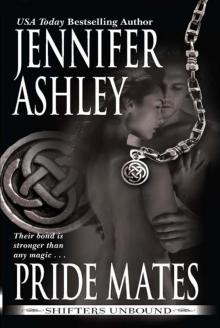 Pride Mates
Pride Mates The Duke's Perfect Wife
The Duke's Perfect Wife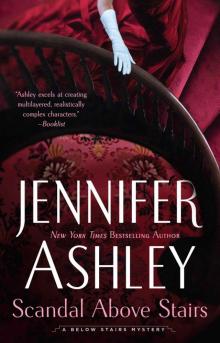 Scandal Above Stairs
Scandal Above Stairs White Tiger
White Tiger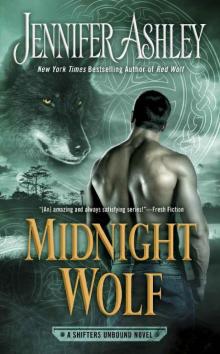 Midnight Wolf
Midnight Wolf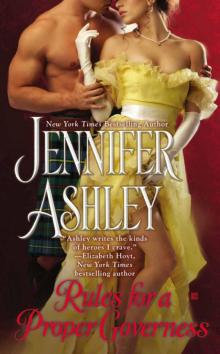 Rules for a Proper Governess
Rules for a Proper Governess Wild Wolf
Wild Wolf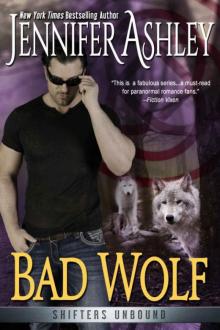 Bad Wolf
Bad Wolf Lion Eyes
Lion Eyes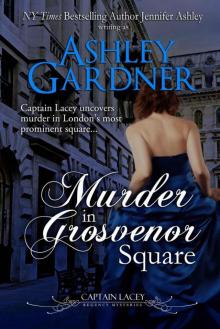 Murder in Grosvenor Square
Murder in Grosvenor Square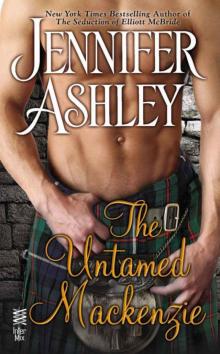 The Untamed MacKenzie
The Untamed MacKenzie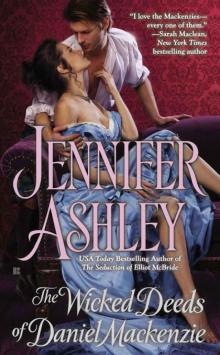 Wicked Deeds of Daniel Mackenzie
Wicked Deeds of Daniel Mackenzie Tiger Striped_Shifters Unbound
Tiger Striped_Shifters Unbound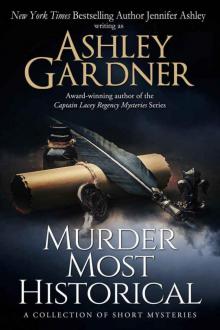 Murder Most Historical
Murder Most Historical Shifter Made
Shifter Made Mate Bond
Mate Bond Tiger Striped
Tiger Striped Bodyguard
Bodyguard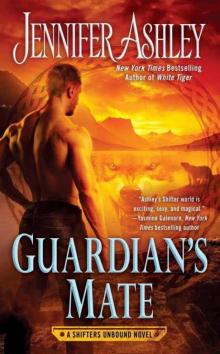 Guardian's Mate
Guardian's Mate From Jennifer Ashley, With Love
From Jennifer Ashley, With Love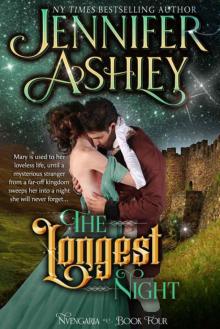 The Longest Night
The Longest Night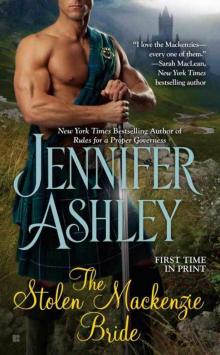 The Stolen Mackenzie Bride
The Stolen Mackenzie Bride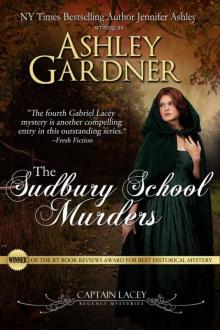 The Sudbury School Murders
The Sudbury School Murders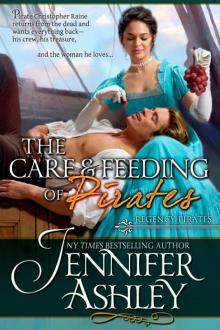 The Care & Feeding of Pirates
The Care & Feeding of Pirates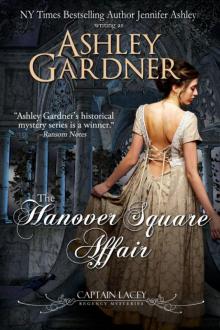 The Hanover Square Affair
The Hanover Square Affair Death Below Stairs
Death Below Stairs Wild Things
Wild Things Wild Cat
Wild Cat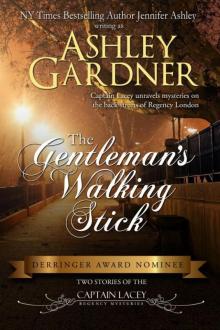 The Gentleman's Walking Stick
The Gentleman's Walking Stick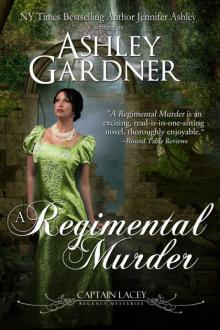 A Regimental Murder
A Regimental Murder Lone Wolf
Lone Wolf Forbidden Taste
Forbidden Taste Red Wolf
Red Wolf The Madness of Lord Ian Mackenzie
The Madness of Lord Ian Mackenzie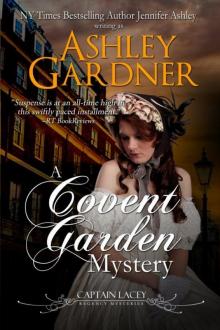 A Covent Garden Mystery
A Covent Garden Mystery The Pirate Next Door
The Pirate Next Door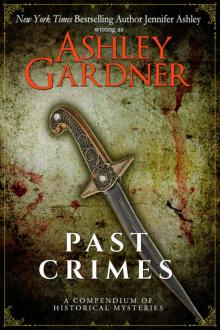 Past Crimes: A Compendium of Historical Mysteries
Past Crimes: A Compendium of Historical Mysteries Highlander Ever After
Highlander Ever After The Alexandria Affair
The Alexandria Affair A Shifter Christmas Carol
A Shifter Christmas Carol The Devilish Lord Will
The Devilish Lord Will Adam
Adam Kyle (Riding Hard Book 6)
Kyle (Riding Hard Book 6)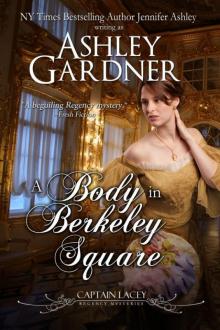 A Body in Berkeley Square
A Body in Berkeley Square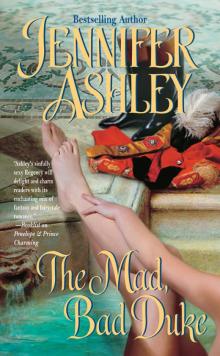 The Mad, Bad Duke
The Mad, Bad Duke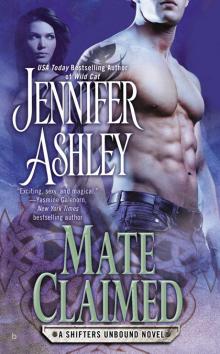 Mate Claimed
Mate Claimed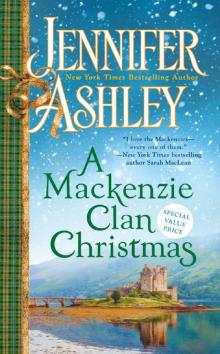 A Mackenzie Clan Christmas
A Mackenzie Clan Christmas The Seduction of Elliot McBride
The Seduction of Elliot McBride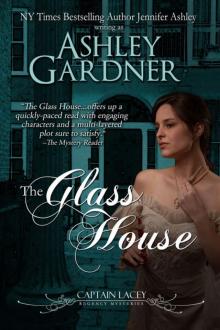 The Glass House
The Glass House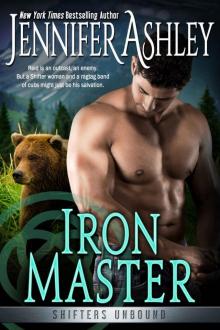 Iron Master (Shifters Unbound Book 12)
Iron Master (Shifters Unbound Book 12) A Mackenzie Family Christmas: The Perfect Gift
A Mackenzie Family Christmas: The Perfect Gift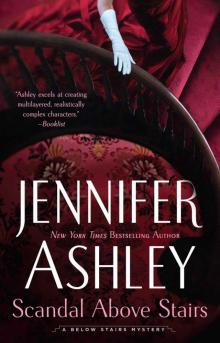 Scandal Above Stairs_A Below Stairs Mystery
Scandal Above Stairs_A Below Stairs Mystery Perfect Mate
Perfect Mate Murder in the East End
Murder in the East End Snowbound in Starlight Bend
Snowbound in Starlight Bend Hard Mated
Hard Mated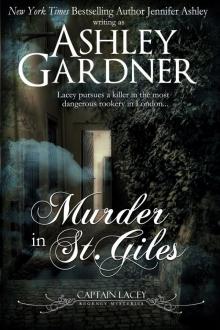 Murder in St. Giles
Murder in St. Giles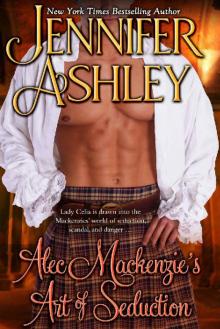 Alec Mackenzie's Art of Seduction
Alec Mackenzie's Art of Seduction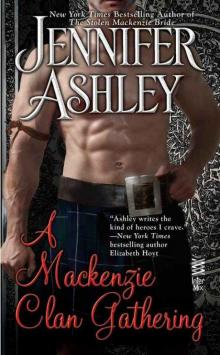 A MacKenzie Clan Gathering
A MacKenzie Clan Gathering Tyler
Tyler Lady Isabella's Scandalous Marriage
Lady Isabella's Scandalous Marriage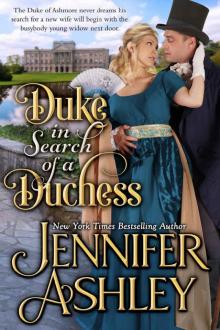 Duke in Search of a Duchess: Sweet Regency Romance
Duke in Search of a Duchess: Sweet Regency Romance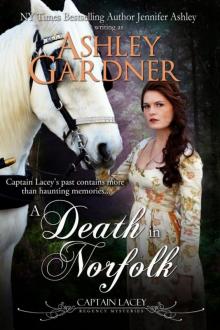 A Death in Norfolk
A Death in Norfolk Give Me One Night (McLaughlin Brothers Book 4)
Give Me One Night (McLaughlin Brothers Book 4)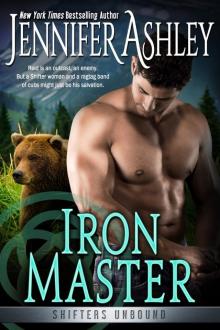 Iron Master
Iron Master The Many Sins of Lord Cameron
The Many Sins of Lord Cameron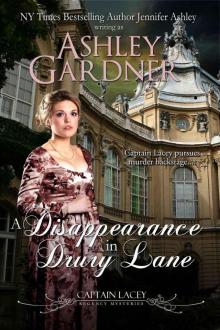 A Disappearance in Drury Lane
A Disappearance in Drury Lane Never Say Never (McLaughlin Brothers Book 3)
Never Say Never (McLaughlin Brothers Book 3) Death in Kew Gardens
Death in Kew Gardens Ross: Riding Hard, Book 5
Ross: Riding Hard, Book 5 Ray: Riding Hard
Ray: Riding Hard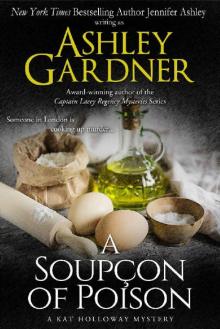 A Soupçon of Poison
A Soupçon of Poison Tiger Magic
Tiger Magic The Pirate Hunter's Lady
The Pirate Hunter's Lady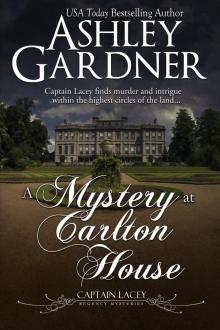 A Mystery at Carlton House
A Mystery at Carlton House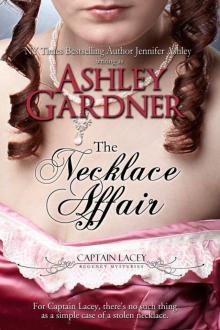 The Necklace Affair
The Necklace Affair Wolf Hunt
Wolf Hunt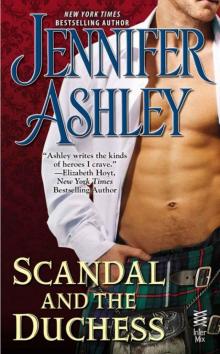 Scandal and the Duchess
Scandal and the Duchess Kyle
Kyle Why Don't You Stay? ... Forever (McLaughlin Brothers Book 2)
Why Don't You Stay? ... Forever (McLaughlin Brothers Book 2)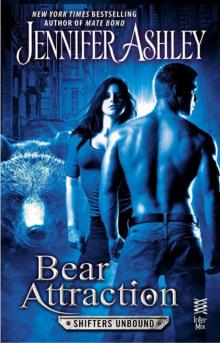 Bear Attraction
Bear Attraction The Gathering
The Gathering A Mackenzie Yuletide
A Mackenzie Yuletide Wild Things (Shifters Unbound #7.75)
Wild Things (Shifters Unbound #7.75) The Redeeming
The Redeeming The Seduction of Elliot McBride hp-5
The Seduction of Elliot McBride hp-5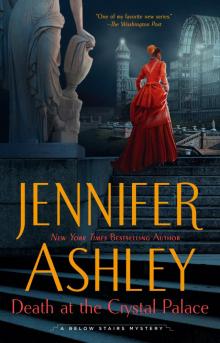 Death at the Crystal Palace
Death at the Crystal Palace Mackenzie Family Christmas: The Perfect Gift (highland pleasures)
Mackenzie Family Christmas: The Perfect Gift (highland pleasures) Forbidden Taste: A Vampire Romance (Immortals)
Forbidden Taste: A Vampire Romance (Immortals)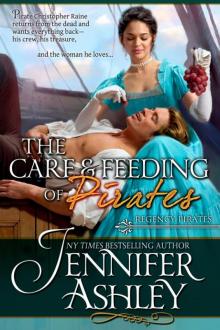 Care and Feeding of Pirates
Care and Feeding of Pirates Shifter Made (shifters unbound)
Shifter Made (shifters unbound) Dark and Dangerous: Six-in-One Hot Paranormal Romances
Dark and Dangerous: Six-in-One Hot Paranormal Romances The Duke’s Perfect Wife hp-4
The Duke’s Perfect Wife hp-4 The Seduction of Elliot McBride (Mackenzies Series)
The Seduction of Elliot McBride (Mackenzies Series)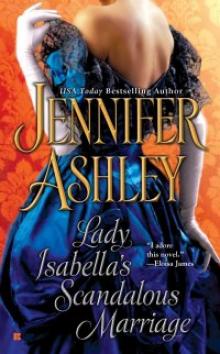 Lady Isabella's Scandalous Marriage hp-2
Lady Isabella's Scandalous Marriage hp-2 BodyGuard (Butterscotch Martini Shots Book 2)
BodyGuard (Butterscotch Martini Shots Book 2)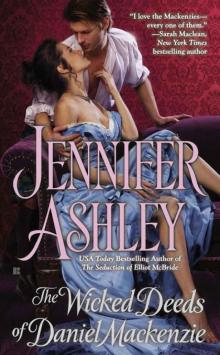 The Wicked Deeds of Daniel Mackenzie hp-6
The Wicked Deeds of Daniel Mackenzie hp-6 Tiger Magic su-5
Tiger Magic su-5 The Madness Of Lord Ian Mackenzie hp-1
The Madness Of Lord Ian Mackenzie hp-1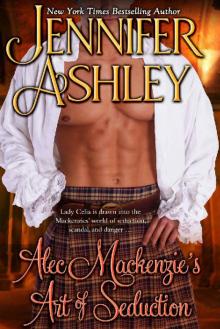 Alec Mackenzie's Art of Seduction: Mackenzies (Mackenzies Series Book 9)
Alec Mackenzie's Art of Seduction: Mackenzies (Mackenzies Series Book 9) Mackenzie Family Christmas: The Perfect Gift
Mackenzie Family Christmas: The Perfect Gift Bodyguard (Shifters Unbound #2.5)
Bodyguard (Shifters Unbound #2.5)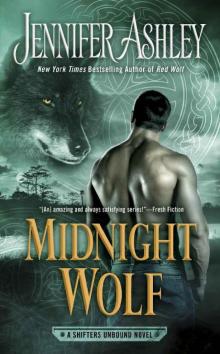 Midnight Wolf (A Shifters Unbound Novel)
Midnight Wolf (A Shifters Unbound Novel) White Tiger (A Shifter's Unbound Novel)
White Tiger (A Shifter's Unbound Novel) Cowboys Last All Night
Cowboys Last All Night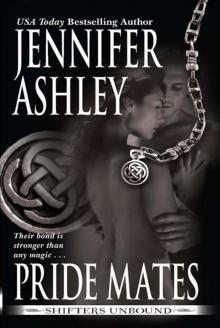 Pride Mates su-1
Pride Mates su-1 Hard Mated (shifters unbound )
Hard Mated (shifters unbound ) Bodyguard (shifters unbound )
Bodyguard (shifters unbound ) Snowbound in Starlight Bend: A Riding Hard Novella
Snowbound in Starlight Bend: A Riding Hard Novella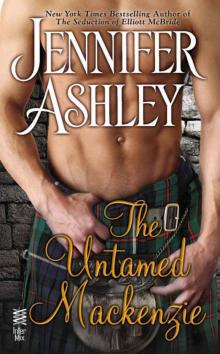 The Untamed Mackenzie (highland pleasures)
The Untamed Mackenzie (highland pleasures)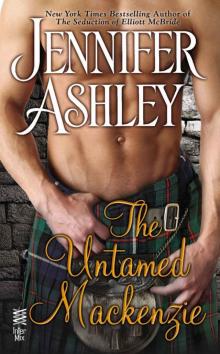 The Untamed Mackenzie (Mackenzies Series)
The Untamed Mackenzie (Mackenzies Series)![Highland Pleasures [6] The Wicked Deeds of Daniel Mackenzie Read online](http://i1.bookreadfree.com/i2/04/07/highland_pleasures_6_the_wicked_deeds_of_daniel_mackenzie_preview.jpg) Highland Pleasures [6] The Wicked Deeds of Daniel Mackenzie
Highland Pleasures [6] The Wicked Deeds of Daniel Mackenzie Lone Wolf (shifters unbound)
Lone Wolf (shifters unbound)![Shifters Unbound [5] Tiger Magic Read online](http://i1.bookreadfree.com/i2/04/11/shifters_unbound_5_tiger_magic_preview.jpg) Shifters Unbound [5] Tiger Magic
Shifters Unbound [5] Tiger Magic Tyler (Riding Hard Book 4)
Tyler (Riding Hard Book 4) Ross
Ross Bad Boys of the Night: Eight Sizzling Paranormal Romances: Paranormal Romance Boxed Set
Bad Boys of the Night: Eight Sizzling Paranormal Romances: Paranormal Romance Boxed Set From Jennifer Ashley, With Love: Three Paranormal Romances from Bestselling Series
From Jennifer Ashley, With Love: Three Paranormal Romances from Bestselling Series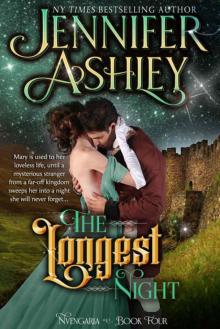 The Longest Night: Fantasy Romance (Nvengaria Book 4)
The Longest Night: Fantasy Romance (Nvengaria Book 4) The Many Sins of Lord Cameron hp-3
The Many Sins of Lord Cameron hp-3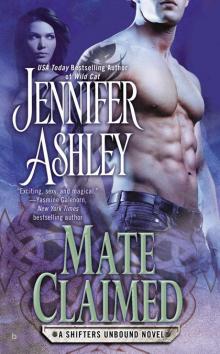 Mate Claimed su-4
Mate Claimed su-4